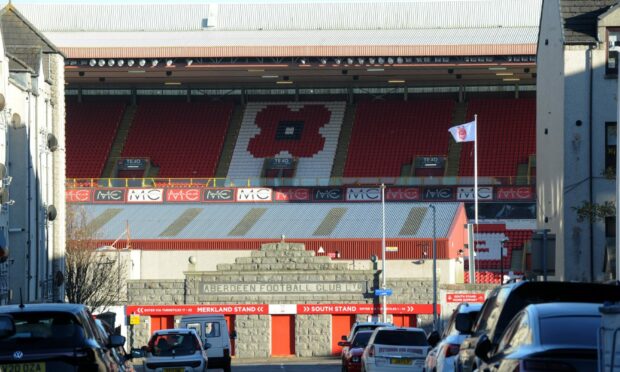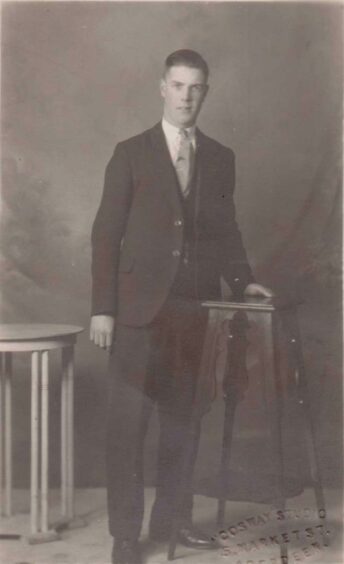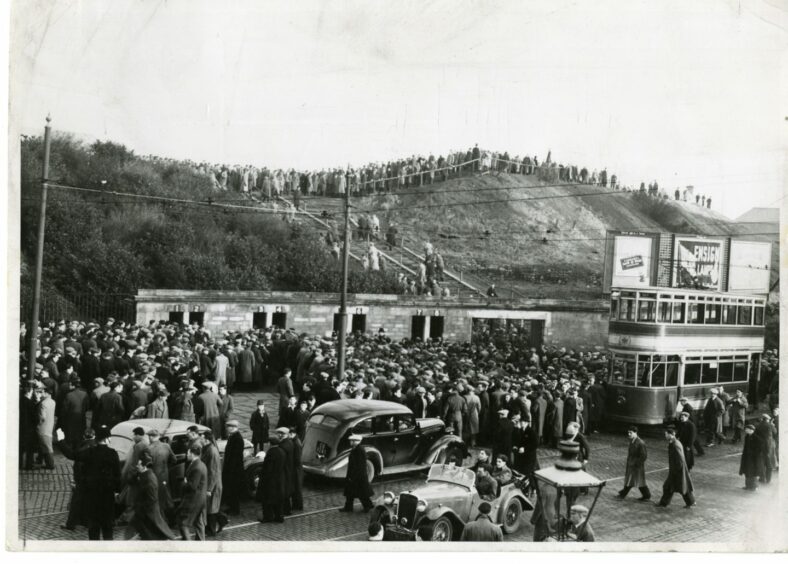Football has had to deal with more than its fair share of tragedies of young players killed in wars while serving their country.
But there are others, though their number is mercifully few, who have succumbed to injury while involved in action of a different kind – on the pitch.
Aberdeen youngster Daniel McKenzie, who died in 1931, aged just 22, only played a small number of matches for the Pittodrie club.
But on Saturday November 13, at the annual AFC Heritage Trust Remembrance event, his name will be added to the club’s Roll of Honour.
He will be the second “Heavenly Dancer” to be enrolled not because he died in the service of his country, but in the service of his club.
Aberdeen FC Heritage Trust has investigated the stories of so many former personnel at Pittodrie and delved into McKenzie’s ill-starred life.
Such tragedies are very rare
Trust stalwart Chris Gavin said: “It is very rare for a player to die because of playing football, but sadly it does happen.
“Last year, we inducted Patrick Doolan, another young man with great footballing potential, who lost his life because of a head wound that he suffered in a reserve match in 1926.
“Now it is the turn of Daniel McKenzie to join the Roll of Honour and to be remembered every year thereafter.”
An exciting winger who was signed from local club Parkvale, McKenzie played only three competitive first team games for the Dons.
In the last of these fixtures, against Dundee at Dens Park on September 20 1930, he was seriously injured in a “heavy collision” with Dundee defender Finlay Brown, who kicked him in the stomach.
He needed emergency surgery
The youngster had to be carried from the pitch but, against medical advice, decided to resume playing after the interval and completed the match.
However, that evening, he became very sick and was taken to Dundee Royal Infirmary where he underwent an operation to deal with internal injuries, and had a kidney removed.
McKenzie returned to his home in Aberdeen, and appeared to have got over his mishap, but about a fortnight later, he suffered a relapse, and was admitted to Aberdeen Royal Infirmary, where his condition deteriorated.
Sadly, as a result of the injury, almost a year after it had happened, he died on September 1 1931.
He was buried at St Peter’s Cemetery on King Street with members of the Parkvale Football Club acting as pallbearers and with a large attendance from Aberdeen FC, including all the players and officials.
Large crowds lined the route to the cemetery, paying silent respect to a young and promising footballer whose life had ended so tragically.
After that, he played no more, but he will not be forgotten as we salute so many players who died for club or country.”
Aberdeen FC Heritage Trust
The trust said: “Before Daniel’s death, Aberdeen had paid him £154 (about £2,800 in modern-day terms) because of the injury.
“On December 22 1931, agreement was reached between the club and Daniel’s family for compensation of £137 to be paid in accordance with the Workmen’s Compensation Act of 1925.
“The agreement was registered at the Sheriff Court in Aberdeen with the court taking responsibility to ensure that the money was properly managed.
“The compensation seems small by today’s standards, but at the time professional players were only likely to be earning less than £5 per week.
“In Daniel’s case, he was being paid £3 10s per week.
“Amazingly, Daniel played one more game – only nine days after his operation – against Huddersfield Town in a friendly match.
“After that, he played no more, but he will not be forgotten as we salute so many players who died for club or country.”
The commemoration will be on Saturday at 10.45am.
Visit afc.co.uk/club/history/afc-heritage-trust for more details.


